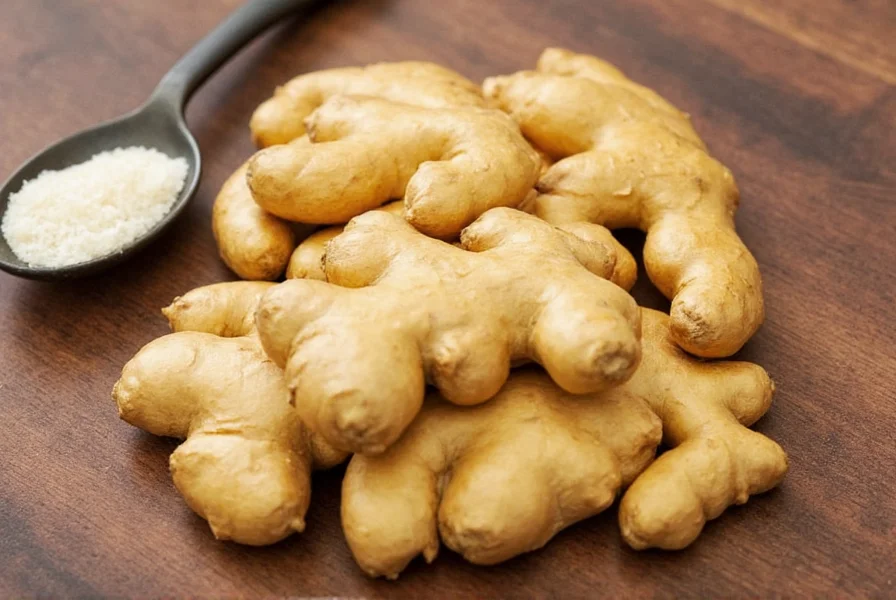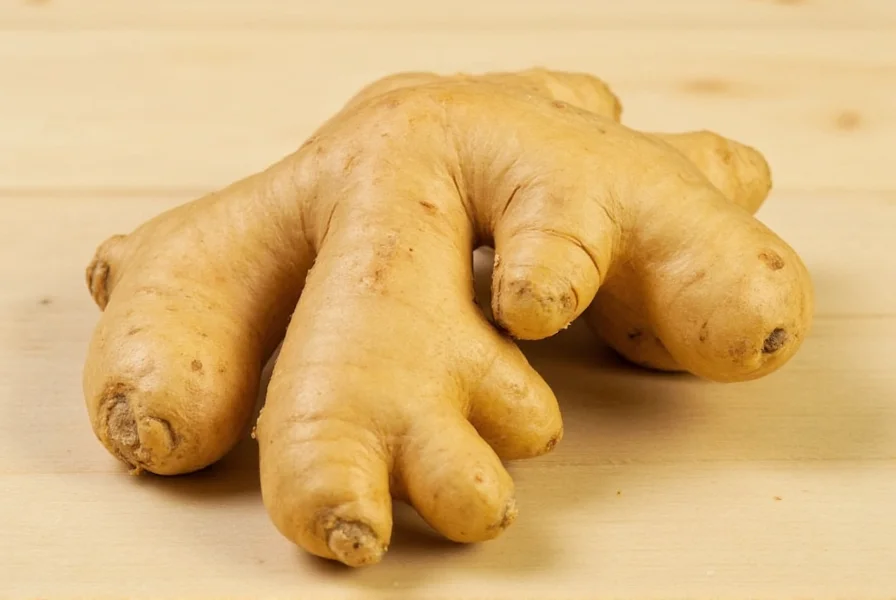The term ginger meaning encompasses multiple definitions that have evolved over centuries. Whether you're exploring culinary ingredients or describing physical characteristics, understanding the complete context of this versatile word provides valuable insight into language and culture.
Primary Definitions of Ginger
When examining ginger meaning in English, we find two predominant interpretations:
| Definition Type | Meaning | Common Usage Context |
|---|---|---|
| Noun | The aromatic rhizome of Zingiber officinale, used as spice and medicine | Culinary, medicinal, and botanical contexts |
| Adjective | Describing red hair and fair complexion | Social, cultural, and descriptive language |
Etymology and Historical Development
The ginger word origin traces back to ancient languages. The term evolved from:
- Sanskrit: 'śṛṅgavera' ("horn body"), referring to the root's shape
- Greek: 'ziggíberis'
- Latin: 'zingiberi'
- Middle English: 'gingivere'
This linguistic journey reflects ginger's historical importance along ancient trade routes. The spice was so valuable that it was sometimes used as currency in medieval Europe. Understanding the historical meaning of ginger reveals its significance beyond mere culinary use.

Modern Usage Examples
Properly understanding ginger meaning in sentences requires examining contemporary usage:
As a Noun (Spice/Medicine)
- "Add freshly grated ginger to your tea for natural cold relief."
- "This Thai curry gets its distinctive flavor from galangal and ginger."
- "Traditional Chinese medicine has used ginger for digestive issues for centuries."
As an Adjective (Physical Description)
- "The ginger-haired actress became famous for her distinctive appearance."
- "In some cultures, ginger children face unique social challenges."
- "The term 'ginger' as a descriptor has evolved from neutral to sometimes pejorative usage."
Cultural Contexts of Ginger Meaning
The interpretation of ginger meaning across cultures varies significantly:
Culinary Significance
Ginger root appears in virtually every major world cuisine. In Asian cooking, it's fundamental to flavor bases. In Western baking, it features prominently in gingerbread and spice cookies. The ginger spice meaning extends beyond taste to include medicinal properties recognized globally.
Social and Identity Contexts
When used as an adjective, "ginger" has developed complex social connotations. While originally a neutral descriptor for red-haired people, it has sometimes taken on negative implications. Recent movements have worked to reclaim the term positively, celebrating ginger hair meaning as a distinctive and valuable trait.
Common Misunderstandings
Several misconceptions surround ginger meaning clarification:
- Misconception: Ginger and galangal are the same plant
- Reality: They're related but distinct rhizomes with different flavor profiles
- Misconception: All red-haired people have the same genetic mutation
- Reality: Multiple genetic variations can produce red hair
- Misconception: Ginger only refers to extreme red hair
- Reality: The term encompasses a spectrum from light strawberry blonde to deep auburn
Related Terms and Expressions
Understanding ginger related terminology enhances your comprehension:
- Gingerism: Discrimination against red-haired people
- MC1R: The melanocortin-1 receptor gene responsible for red hair
- Ginger beer: Originally a fermented beverage, now often non-alcoholic
- Ginger group: Social communities celebrating red hair
Frequently Asked Questions
What is the literal meaning of ginger?
The literal meaning of ginger refers to the aromatic rhizome of the Zingiber officinale plant, which has been used as a spice and medicinal herb for thousands of years. The word originates from Sanskrit 'śṛṅgavera' meaning 'horn body,' describing the root's shape.
Why is red hair called ginger?
Red hair is called 'ginger' because the color resembles the pale yellow-orange hue of fresh ginger root. This usage became common in British English during the 20th century, though the exact origin of this descriptive application isn't precisely documented.
Is ginger considered offensive when referring to red hair?
The term 'ginger' when referring to red hair can be context-dependent. For some, it's a neutral descriptor; for others, it may carry negative connotations due to historical teasing or discrimination. It's generally recommended to use 'red-haired' in formal contexts and follow individual preferences when describing someone's appearance.
What's the difference between ginger and生姜?
Ginger is the English term for the Zingiber officinale plant, while '生姜' (shēngjiāng) is the Chinese term. Both refer to the same rhizome, but usage differs culturally - Chinese cuisine typically uses younger, more tender ginger, while Western cooking often employs mature ginger with stronger flavor.
How has the meaning of ginger evolved over time?
Ginger's meaning has evolved from exclusively referring to the spice in ancient texts to developing the additional meaning of describing red hair in modern English. Historically valued as a luxury spice and medicine, its linguistic journey reflects trade routes from Asia to Europe. The adjective usage for red hair emerged much later, becoming common in 20th century British English.











 浙公网安备
33010002000092号
浙公网安备
33010002000092号 浙B2-20120091-4
浙B2-20120091-4